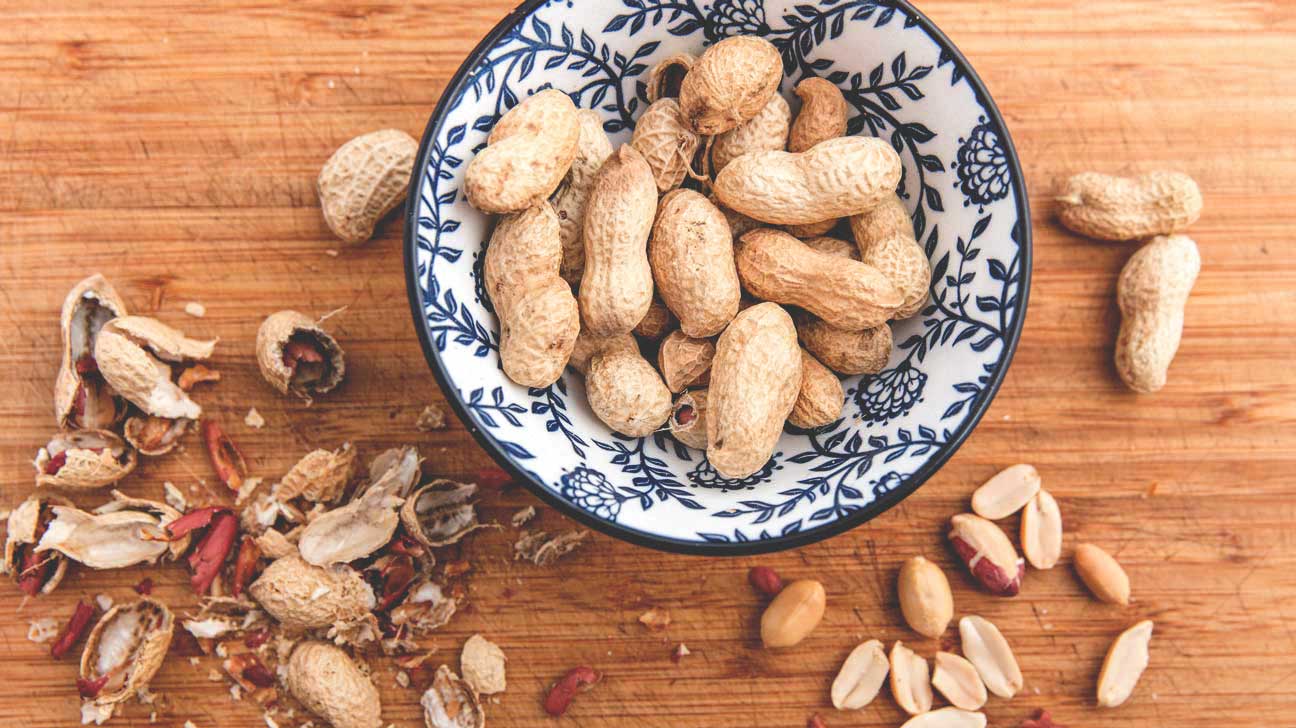Men can indeed benefit from incorporating peanuts into their diets in several ways. One of the most important medications offered to people suffering from erectile dysfunction is Fildena and Cenforce.
Peanuts include antioxidants such as resveratrol and other polyphenols that can protect cells from oxidative damage and lower the risk of chronic diseases such as cancer.
Peanuts include antioxidants such as resveratrol and other polyphenols that can protect cells from oxidative damage and lower the risk of chronic diseases such as cancer.
Some peanut components, such as folate and niacin, are beneficial to brain health and cognitive performance. Folate is required for neurotransmitter synthesis, whereas niacin promotes overall brain function.
Peanuts’ combination of healthy fats, protein, and carbohydrates can give continuous energy, making them an excellent snack for men who lead busy lifestyles or participate in physical activities.
Despite their high carbohydrate content, peanuts have a low glycemic index, which means they have little effect on blood sugar levels when ingested in moderation. This can help guys who have diabetes or are at risk of developing it.
Heart Health:
Peanuts are high in monounsaturated and polyunsaturated fats, both of which are heart-healthy.
These fats can aid in the reduction of LDL (bad) cholesterol levels, lowering the risk of heart disease. Peanuts include antioxidants such as resveratrol, which can benefit cardiovascular health.
Consume a wide range of colorful fruits and vegetables that are high in vitamins, minerals, and antioxidants that promote heart health.
To gain more fiber and minerals, choose whole grains like oats, whole wheat, and brown rice over refined grains.Avocados, almonds, seeds, and olive oil are all good sources of healthful fats. These fats can aid in the reduction of harmful cholesterol levels.
Reduce your consumption of saturated fats (found in fatty meats, dairy products, and some oils) and trans fats (found in processed and fried meals). These lipids have the potential to elevate LDL (bad) cholesterol levels.
Check your cholesterol levels on a regular basis and work with your doctor to manage them. High LDL cholesterol levels raise the risk of heart disease.
Hypertension (high blood pressure) is a major risk factor for heart disease. Blood pressure can be controlled by lifestyle changes and, if necessary, medication.
Weight Management:
Peanuts, despite their relatively high calorie content, can be included in a low-calorie diet. Their combination of healthy fats, protein, and fiber can boost feelings of fullness while also lowering overall calorie intake. As a result, when ingested in moderation, they can help with weight management and even weight loss.
Weight control is an important part of general health and well-being. Maintaining a healthy body weight and composition requires a combination of balanced eating, frequent physical activity, and lifestyle choices.
Obesity, heart disease, type 2 diabetes, and joint problems can all be prevented with proper weight management.
Set attainable, realistic, and long-term weight loss or maintenance objectives. Rather of fast remedies, strive for sustained, steady improvement.
Consume an adequate number of calories in order to maintain or achieve a healthy weight. For weight loss, this frequently entails creating a calorie deficit (burning more calories than you ingest).
Select foods that are high in vitamins, minerals, fiber, and lean protein. Consume fruits and vegetables, whole grains, lean meats, fish, legumes, and low-fat dairy.
Protein:
Peanuts are high in plant-based protein, making them a great choice for vegetarians and vegans. Protein is required for muscle repair, development, and general well-being.
Protein is one of the basic macronutrients your body requires for a variety of purposes, including tissue growth and repair, immune function support, and muscle mass maintenance. It is extremely important for overall health and well-being.
Proteins are made up of amino acids, which are known as the “building blocks” of the body. There are 20 different amino acids that can be classified as essential or non-essential.
The body cannot produce essential amino acids, hence they must be received from diet. The body can manufacture non-essential amino acids.
Protein can be found in a wide variety of foods, both animal and plant-based. Meat, poultry, fish, eggs, and dairy products are all common animal sources. Legumes (beans, lentils), tofu, tempeh, nuts, seeds, and whole grains are all plant-based sources.
The amino acid composition of a protein supply determines its quality. Animal-based proteins are frequently regarded as high-quality because they contain adequate levels of all essential amino acids.
Some plant-based proteins may be deficient in one or more necessary amino acids, but they can be joined to produce full proteins. Rice and beans, for example, give a complete set of amino acids when taken together.
Nutrient Density:
Peanuts are high in minerals like vitamin E, B vitamins (such niacin and folate), magnesium, and potassium. These nutrients are essential for a variety of physical activities as well as general health.
The concentration of vital elements (such as vitamins, minerals, protein, fiber, and antioxidants) in a food or beverage relative to its calorie content is referred to as nutritional density.
Nutrient-dense foods contain a high concentration of beneficial elements per calorie, making them useful for maintaining good health and achieving nutritional demands while limiting calorie intake.
Calorie-dense foods, on the other hand, deliver a large number of calories relative to the nutrients they supply, sometimes with added sweets, harmful fats, or processed carbohydrates.
Nutrient-dense foods are those that are whole, unprocessed, or little processed and high in important nutrients. Fruits and vegetables, lean proteins, entire grains, nuts, seeds, and legumes are examples.
Consuming nutrient-dense foods has been shown to improve general well-being, lower the risk of chronic diseases (such as heart disease and type 2 diabetes), and promote healthy growth and development.

